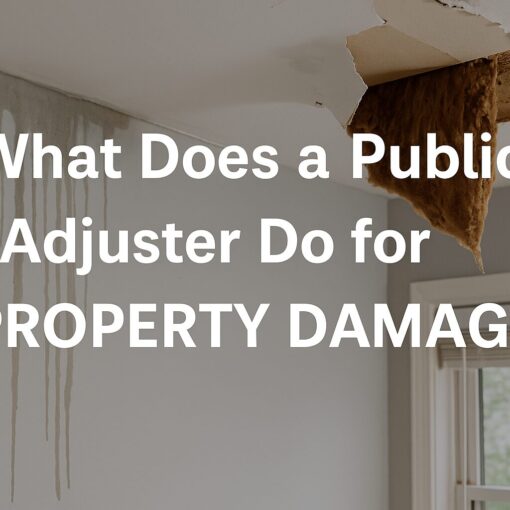Published: September 23, 2025
Short version: If you and your insurer disagree on the amount of loss—not on coverage—the policy’s Appraisal provision can force a neutral valuation so you get paid fairly. Below is a plain‑English, homeowner‑friendly guide from AAA Public Adjusters.
Why this matters right now
Storms and sudden household disasters continue to strain insurers across Philadelphia, Bucks & Montgomery Counties, and South Jersey (Atlantic, Camden, Burlington, Gloucester). We’re seeing more underpaid estimates and delays. Appraisal is a fast, contract‑based way to resolve price and scope disputes without a lawsuit.
Heads‑up: Appraisal addresses how much the loss is worth—not whether the loss is covered at all. If the carrier is denying coverage, different strategies apply. We can advise you on your options.
What is the Appraisal clause?
Most home policies include a clause that says when the insured and the insurer disagree on the amount of loss, either party can demand Appraisal. Each side hires a qualified, independent Appraiser. The two appraisers try to agree; if they can’t, they pick a neutral Umpire. Any two of the three sign an Award—and that amount becomes binding under the policy.
Good for: pricing disputes, scope disagreements, omitted trades, line‑item reductions, labor minimums, code upgrades, and mitigation charges that the carrier priced down.
Not for: pure coverage denials (e.g., the insurer says the policy doesn’t cover the loss at all), late notice issues, or fraud allegations.
When to use Appraisal (common scenarios we see)
- Carrier refuses supplemental items (e.g., deck ledger flashing, ice‑barrier, ridge venting, baseboard/trim, permit fees).
- Xactimate pricing at odds with local market rates or specialty labor.
- Mitigation invoices cut below industry standards (drying days, equipment quantities, labor, or disinfection consistent with IICRC S500).
- Missed code upgrades (ordinance or law) required by your township or borough.
- Matching issues (roof, siding, flooring) causing partial‑repair disputes.
Step‑by‑step: How Appraisal works
- Trigger Appraisal – You (or we on your behalf) send a written demand per your policy.
- Name your Appraiser – Choose a qualified professional who understands construction pricing and policy language.
- Carrier names theirs – They pick an appraiser.
- Inspections & exchanges – Appraisers scope the loss, exchange estimates, photos, invoices, code cites, and permit notes.
- Negotiate – Appraisers attempt to agree. If not, they jointly select an Umpire.
- Umpire review – Umpire may inspect and review both positions.
- Award – Any two signatures (your appraiser + umpire, or carrier appraiser + umpire) set the binding amount of loss.
- Payment – Insurer issues payment per the Award (minus deductible and prior payments). Depreciation may still be recoverable if your policy has RC (replacement cost) and work is completed.
Timeline: Often 30–90 days from demand to award, depending on schedules and complexity.
Costs: You pay your appraiser; the insurer pays theirs; Umpire is split 50/50. We’ll discuss flat‑fee vs. hourly so there are no surprises.
What to prepare (your checklist)
- Full contractor estimates, including photos and line items.
- Mitigation invoices, equipment logs, daily photos, psychrometrics (if available).
- Receipts for emergency repairs, tarping, board‑ups.
- Code and permit requirements (we can help pull township/borough references).
- Pre‑loss comps (materials, finishes, brand/model for appliances and fixtures).
- Your policy—Declarations, forms, and endorsements (e.g., Ordinance or Law, Water Backup, Service Line).
Appraisal vs. lawsuit vs. mediation
- Appraisal: Faster, narrower, and usually cheaper. Focused on valuation only.
- Lawsuit: Addresses coverage, bad faith, and complex legal issues—but takes longer and costs more.
- Mediation: Voluntary negotiation with a neutral; non‑binding unless a settlement is signed.
Many homeowners start with Appraisal to unlock fair payment quickly.
Pitfalls to avoid
- Mixing coverage disputes into Appraisal. Keep it to price/scope. Coverage fights can derail the process.
- Choosing an appraiser without construction expertise (or without local pricing insight).
- Thin documentation. If it’s not documented, it’s hard to win in Appraisal.
- Missing policy deadlines. Some policies have timing requirements—don’t delay.
How AAA Public Adjusters helps
- We review your policy, estimate, and all carrier communications.
- Draft and serve the Appraisal demand letter.
- Recommend vetted Appraisers/Umpires with Pennsylvania & New Jersey experience.
- Assemble a persuasive Appraisal package (photos, pricing, codes, mitigation justifications).
- Coordinate inspections and keep you informed until Award and payment.
Serving homeowners and businesses across Philadelphia, Bucks, Montgomery, Delaware County, and South Jersey (including Atlantic City, Margate, Ventnor, Cherry Hill, Moorestown, Marlton).
Real‑world examples (names withheld)
- Roof & interior: Carrier priced only shingle repairs; Appraisal awarded full slope replacement, interior repainting, and code‑required ice/water shield.
- Mitigation dispute: Drying days and equipment cut by carrier; Appraisal restored line items consistent with IICRC S500 and local labor minimums.
- Kitchen loss: Matching cabinet fronts + toe‑kicks initially denied; Appraisal awarded a consistent finish solution.
FAQs
Does Appraisal mean I’m suing my insurance company?
No. Appraisal is a contractual process inside your policy, not a lawsuit.
Will I have to go to court?
Generally no. You don’t attend; your appraiser handles inspections and negotiations.
Can I challenge an Appraisal Award?
Awards are typically binding on the amount of loss, with very limited grounds to challenge (e.g., fraud).
What if the carrier is denying coverage?
Appraisal won’t fix a pure coverage denial. Different strategies apply—talk to us.
How long does it take?
Commonly 30–90 days, but complex losses can take longer.
Call to action
Think your claim is underpaid? Let’s review it.
215‑364‑4200
✉️ aaapubadj@yahoo.com
Offices in Feasterville, PA and serving PA & NJ statewide.




